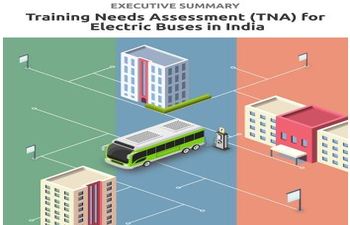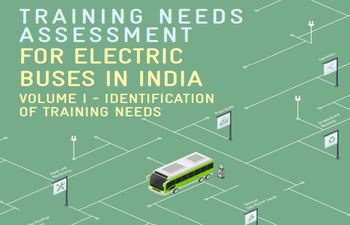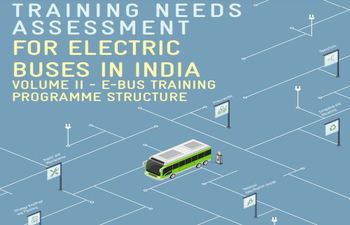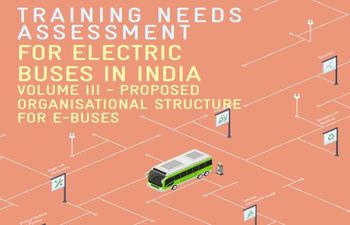Reports
The Road Ahead for E-mobility
2020
Author(s): Tschiesner A, Heuss R, Hensley R, Wu T, Schaufuss P, Hertzke P, Knupfer Stefan M, Gersdorf T
While electrification represents the biggest technological development in automotive power trains in decades, there is still significant uncertainty as to when large-scale adoption of electric vehicles (EVs) will occur.
Analysis of Heavy-duty Vehicle Fuel Efficiency Technology Uptake in California and Canada
2021
Author(s): Sharpe B, Schaller D
This study analyzes policies that California, the United States, and Canada have enacted to promote reduced GHG emissions from heavy-duty trucks, how these policies have impacted technology deployment, and lessons that Canada can take as it evaluates policy options to accelerate the deployment of fuel- and GHG-reduction technologies in its trucking fleet.
Location is Everything: Approaches to Siting Electric Vehicle Charging Infrastructure for the Indian Context
2020
Author(s): Natural Resources Defense Council (NRDC)
This issue brief provides decision-makers and stakeholders with information on the principles of charging infrastructure location and siting. It also presents successful EV adoption approaches that have been used by cities in other parts of the world. In addition, based on international practices, this issue brief presents approaches to siting EV charging infrastructure.

Training Needs Assessment (TNA) for Electric Buses in India: Executive Summary
2021
Author(s): Deutsche Gesellschaft für Internationale Zusammenarbeit (GIZ) GmbH
Under SMART-SUT project, GIZ has concluded a National level study on “Training Needs Assessment (TNA) for Electric Buses in India”. Under SMART-SUT project, GIZ has concluded a National level study on “Training Needs Assessment (TNA) for Electric Buses in India”.

Training Needs Assessment for Electric Buses in India: Volume I - Identification of Training Needs
2021
Author(s): Deutsche Gesellschaft für Internationale Zusammenarbeit (GIZ) GmbH
This volume identifies clear training needs in Public Transport Authorities (PTAs) across e-Bus life cycle functions, various departments, and hierarchies.

Training Needs Assessment for Electric Buses in India: Volume II - E-Bus Training Programme Structure
2021
Author(s): Deutsche Gesellschaft für Internationale Zusammenarbeit (GIZ) GmbH
This report aims to prepare a detailed and organised training programme structure for Public Transport Authorities (PTAs). It identifies a total of eight e-Bus training modules across its life cycle stages – i.e. from fundamentals and safety; technology selection; financial planning and strategy; procurement; operations; monitoring and control; repair and maintenance; and end-of-life, scrapping, and recycling.

Training Needs Assessment for Electric Buses in India: Volume III - Proposed Organisational Structure for E-Buses
2021
Author(s): Deutsche Gesellschaft für Internationale Zusammenarbeit (GIZ) GmbH
The Volume – III report, considers two operating models for e-Buses, namely 1) PTAs (Public Transport Authorities) with all inhouse e-Bus operations and 2) PTAs (Public Transport Authorities with SPV structure and PPP model, requiring no Central Workshop.
This study identified several areas which could accelerate the development of the Australian hydrogen market. The focus is on activities that will advance near commercial sectors toward economic viability and confirmation / definition of industry standards.

1st Brazilian Electric Mobility Annual Report
2021
Author(s): Brazil's National Platform for Electric Mobility (PNME)
The publication launched by Brazil's National Platform for Electric Mobility* (PNME in the abbreviation in Portuguese) presents a broad panorama of the sector in the country and aims to generate knowledge to stimulate market growth, foster professional training and provide the basis for the development of public policies on the subject.

Electric Mobility in India
2021
Author(s): The International Bank for Reconstruction and Development, The World Bank Group
An analysis was undertaken by the World Bank to review the development of e-mobility in India, identify remaining challenges and mitigation measures to support India’s electric mobility vision. This report presents the findings of the analysis and lays out a set of recommendations for consideration by different stakeholders.



